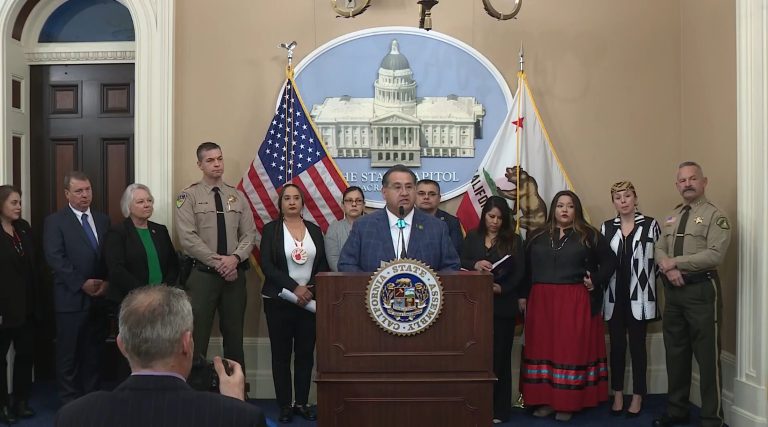Podcast: Play in new window | Download | Embed
A coalition of tribes in the Northern Plains-Northern Rockies is receiving more than $135 million to bring solar energy to more than a dozen tribal communities in five states.
Danielle Kaeding reports the funding is part of $7 billion in federal grants announced by President Joe Biden on Earth Day.
The Mandan Hidatsa Arikara (MHA) Nation will work with the Native-led nonprofit Indigenized Energy to manage solar projects.
Fred Fox, a councilman with the MHA Nation, says the money will create hundreds of jobs and fund solar installations on 8,500 homes.
“It will bring energy security and tremendous cost savings to residents of tribal nations.”
Ron Corn is a member of Indigenized Energy’s board and former chair of the Menominee Indian Tribe of Wisconsin.
He says the money will benefit some of the most vulnerable tribal communities.
“This historic investment in clean and renewable energy, solar economies, workforce development, and greenhouse gas reduction aligns with our commitment to the future generations of Native people.”
The Environmental Protection Agency estimates the $7 billion investment will yield more than $350 million in savings on electric bills.
The funding is from EPA’s Solar for All program.
The EPA invited competitive proposals for the grants.
60 applications were selected for the program, including five other tribal applicants for projects in the Midwest, Southwest, and Alaska.
 The Mashantucket Pequot Museum and Research Center in Connecticut has reopened after construction.
The Mashantucket Pequot Museum and Research Center in Connecticut has reopened after construction.
The museum’s organizers say it uses Westernized museum practices and Indigenizes them.
Hannah Bissett from our flagship station KNBA has more.
The Mashantucket Pequot Museum opened its doors on August 11th, 1998.
It’s tribally owned and operated and, according to the museum, the largest Native-owned museum in the world.
The museum covers around 20,000 years of history.
The head of education for the museum is Nakai Clearwater Northup.
He spoke about the new improvements and the mission of the museum.
“Typically the losers of the war don’t get to tell their stories, other people get to write their histories for them, and we get to really combat that.”
Originally, the renovations were architectural.
“We’ve redone seating in our auditoriums, we have a 300-seat auditorium where we’ve run larger programs.”
The museum was also able to improve in other ways.
“Revamped our witness film, which talked about the Pequot war, and if you came and saw it in the past 25 years it was really grainy and it was literally actually running on film, we’ve had it digitized and it’s clear, it looks great.”
Northup says that the museum is also taking the renovations as a time to focus on repatriation and revitalization of language.
“People would donate a lot of things or they would bring them and we’d house them here. And we’re looking at a lot of things now and we are thinking ‘Well we really shouldn’t have this.’ And we have the ability to return or repatriate these items back to these communities.”
Northup says repatriation falls under four values: trust, relationship, balance, and decolonization.
Continuing their mission, Northup says that decolonization within museum science practices is significant for them, from the way visitors can interact with exhibits to other traditions.
“And just how we start the day, we are able to participate in ceremony, we have our family tribal community here and hosting events.”
This decolonization also takes the form of – farmer’s markets, powwows, and other community-led educational programs.
Along with this, Northup says the renovations opened up the pathway for youth to learn more about the museum and what it has to offer.
“To have the next generation here being able to soak up information, and for us to have the awesome opportunity to continue to share our story – our history, so it’s a really exciting time of year.”
The museum offers virtual tours and experiences along with interactive in-person exhibitions, and in the next coming years there are plans to reinvigorate more exhibits.
Get National Native News delivered to your inbox daily and stay up-to-date on the 2024 Native Vote. Sign up for our daily newsletter today.



